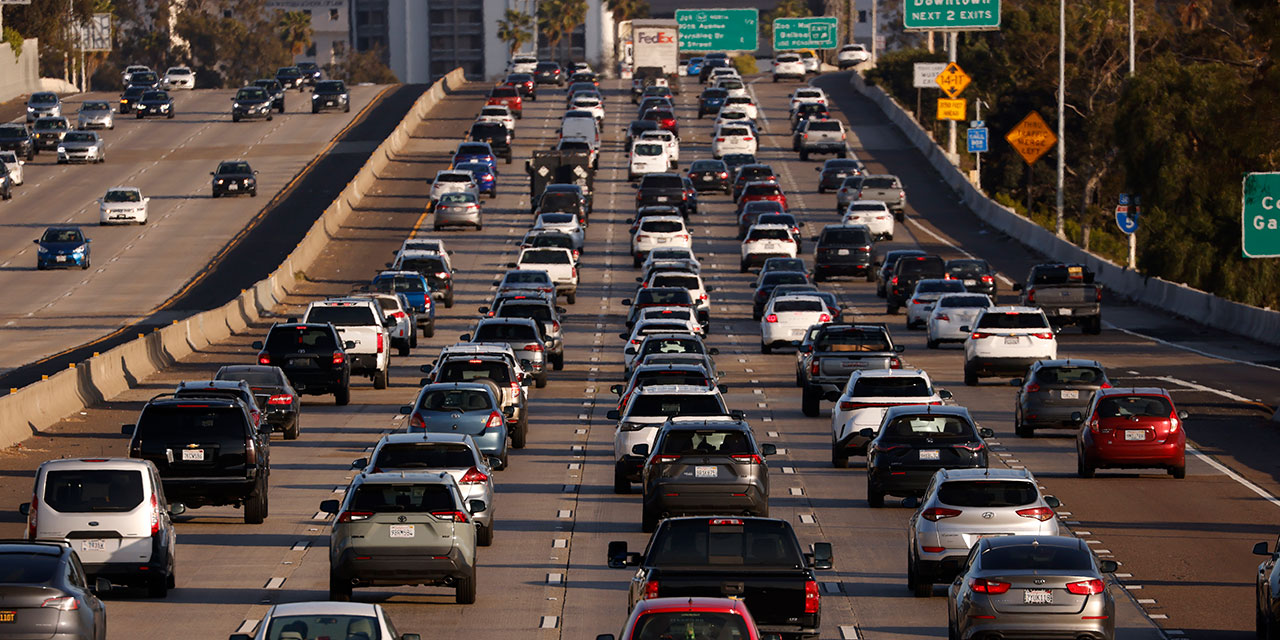
For decades, California has made environmental policy as if it were a sovereign nation, not an equal member of the Union. The federal government granted it this privilege on the premise that the Golden State faced uniquely urgent challenges requiring special treatment.
Over time, that sense of exceptionalism has only grown. The state’s auto emissions standards have been adopted nationwide, and the governor now holds the power to dictate, with a single signature, which cars residents can and cannot buy.
Finally, a reason to check your email.
Sign up for our free newsletter today.
But that arrangement may finally be unraveling. Recent legislation signed by President Trump sends the clearest signal yet that the state’s regulatory exceptionalism is no longer politically sustainable.
The Environmental Protection Agency has been granting the state waivers to federal clean air rules since 1967, denying only one of more than 100 requests during that time, in 2008. Congress was willing to provide environmental waivers in the early years because, according to the Congressional Research Service, California had “demonstrated compelling and extraordinary circumstances sufficiently different from the nation as a whole to justify standards on automobile emissions which may, from time to time, need to be more stringent than national standards.” Supportive lawmakers believed that California’s “pioneering” efforts in emission standards “offer[ed] a unique laboratory, with all the resources necessary, to develop effective control devices which can become a part of the resources of this nation.”
The exemptions eventually allowed the state to enact vehicle-emission standards stricter than national rules, forcing automakers to produce two sets of vehicles—one for California and another for the rest of the country. Over time, as more states adopted the stricter guidelines, the stricter limits have become the de facto national standard. Manufacturers have little choice but to build all their cars based on California’s rules, because “it’s very expensive for automakers to have to deal with multiple ways to produce a car for different emissions settings,” says Karl Brauer, an analyst at iSeeCars.com.
The EPA waivers have also emboldened state policymakers. Without them, it’s unlikely that Governor Gavin Newsom would have issued his 2020 electric vehicle mandate, requiring all new cars and light trucks sold in the state to be zero-emission by 2035. Goodbye, internal combustion engines.
A few lawmakers grumbled about Newsom issuing the rule by executive order rather than through the normal legislative process, but their objections went nowhere. The mandate aligns so closely with progressive priorities that most legislators didn’t care how it came about. In 2022, the California Air Resources Board unanimously codified Newsom’s rule—but its members are appointed, not elected, making the board little more than a rubber stamp for the governor’s unilateral policymaking.
While presidential administrations and congressional majorities from both parties have been willing to let the state do as it pleases up to now, neither the current Congress nor President Trump are so inclined. Congress passed three resolutions that will end California’s practice of nullifying federal law, and Trump signed them into law last month. The legislation “will kill, totally kill” the state’s EV mandates “forever,” Trump said at the signing ceremony. “And they’re never coming back.” Trump also said of the bill that California “can’t take us to court,” but it wasn’t long before the Golden State and ten others filed a lawsuit.
California is unique among the 50 states in numerous ways. Its residents could argue persuasively that, over the past century, no state has been more vital to the rest of the country or boasted a larger social and economic footprint. But California can’t operate as an independent nation, even if 61 percent of the state population believes that “California would be better off if it peacefully seceded,” and 77 percent want the state to control its borders “more like a country.” Too many of the Golden State’s policy decisions affect other states, whose voters don’t have a say in what Sacramento does.
The rest of the country would appreciate more cooperation and less separatism from California, along with some overdue political humility.
Photo by Kevin Carter/Getty Images
City Journal is a publication of the Manhattan Institute for Policy Research (MI), a leading free-market think tank. Are you interested in supporting the magazine? As a 501(c)(3) nonprofit, donations in support of MI and City Journal are fully tax-deductible as provided by law (EIN #13-2912529).
Source link

















